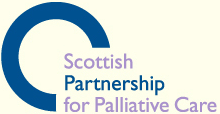- SPPC Achievements 2024-25
- Annual Conference 2025: From System Holes to Whole System
- Call for Posters
- Assisted Dying Bill - Perspectives Informed by Palliative Care
- SPPC’s response to the public consultation on the SG Strategy for Palliative Care
Poster Abstracts of the Month: September
Poster Abstracts of the Month: September
The SPPC Annual Conference in 2018 featured 48 poster displays, sharing work and research underway across Scotland. Each month, this blog focuses on the content of a few of these posters. This month, we focus on six of these:
- Pressure Ulcer Prevention in Palliative care
- Raising Death Awareness in Thailand, the Case of Life Unlocking Card Game
- ReSPECT - Find out what it means to me
- Scotland’s first pilot of the ReSPECT (Recommended Summary Plan for Emergency Care and Treatment) process
- Sharing the Learning at the Palliative Care in Prisons Conference
- Supportive and Palliative Care in HMP Glenochil
Pressure Ulcer Prevention in Palliative care |
|
|
Author(s) |
Katherine Hynd, Libby Milton |
|
‘Pressure ulcers impose a significant financial burden on health care systems and negatively affect quality of life’ (Moore and Cowman 2013). Marie Curie (MC) recognised that pressure ulcer (PU) prevention/ management was an area where practice could be improved. Approaches: Leadership • Creation of link nurse role • Commitment by MC to support the development of link nurse • Participation in national MC TV working group Clinical • Review of risk assessment and implementation of updated assessment tool • Low threshold to reporting all PUs acquired in our care regardless of grade • Ensuring most appropriate equipment in place • Review and development of documentation Educational • Developed teaching package for RNs and HCAs • All staff included in roll out of teaching – face to face sessions to allow space for group discussions and individualised learning • Developed materials to display on the wards • Link nurse role to offer support and guidance in practice Cultural shift • Every PU acquired in our care investigated and RCA completed, with feedback to the team • Raised profile of patients who are at risk in patient safety briefs Outcomes: • Incidence of PUs acquired in our care demonstrates sustained improvements, with 9 sequential months data below previous average. |
|
Raising Death Awareness in Thailand, the Case of Life Unlocking Card Game |
|
|
Author(s) |
Tanida Apichanakulchai; Deans Buchanan; Linda McSwiggan; Tharin Phenwan; Ekkapop Sittiwantana; Judith Sixsmith |
|
Introduction: Advance Care Planning (ACP) is an agreement of preferred care between patients, family, and the health care team should the patient become incapacitated. However, ACP uptake and awareness is still low in Thailand. The Life Unlocking Card Game is an intervention that aimed to use gamified element to raise ACP awareness. This study assessed the effectiveness of the Life Unlocking Card Game as a tool to raise death and ACP awareness in Thailand. Methods: A retrospective feasibility study using a convenient sampling method with Thais participants who are older than 18 years old. 27 card game sessions were held during January 2014 and December 2016 with 342 participants. We used data from an anonymised pre-game and post-game survey for participants' demographical data and evaluation feedback. Data was analysed using thematic analysis with investigator triangulation. Results: Three themes emerged; 1) Closeness of death, 2) Co-construction of the meaning of death, 3) the obligation and importance of ACP. Discussion and conclusion: The Life Unlocking Card Game is a useful tool to raise death and ACP awareness amongst Thais. Further study is recommended with other groups such as the patients, carers, and healthcare professionals. |
|
ReSPECT - Find out what it means to me |
|
|
Author(s) |
Dr Sean Duignan; Dr Lynsey Fielden; Dr Jennifer McNeill |
|
‘ReSPECT’ (Recommended Summary Plan for Emergency Care and Treatment) is a process which facilitates emergency and anticipatory care planning. All new admissions to an acute ageing and health receiving ward were screened between 10/5/18 and 10/6/18 for ReSPECT ‘triggers’. If trigger positive, retrospective assessment of escalation planning was conducted by reviewing whether there was a pre-existing KIS (Key Information Summary), ReSPECT form or consultant escalation plan on admission. These triggering patients were highlighted to the medical team in the patients notes as a prompt to consider a ReSPECT discussion with patients and families. Since ReSPECT screening has started and ReSPECT documents have been completed for patients, there has been an increase in the number of documented emergency/ anticipatory care plans in the form of: KIS; admission escalation plans and ReSPECT forms. This reached a total of 100% of patients screening ‘positive for ReSPECT’ in the final week. |
|
Scotland’s first pilot of the ReSPECT (Recommended Summary Plan for Emergency Care and Treatment) process |
|
|
Author(s) |
S Campbell; LA Fielden; D Lynch; K Petrie |
|
Background: Across Scotland, there is no universal process for recording emergency treatment discussions besides DNACPR decisions which have been associated with negative connotations. The ReSPECT process creates personalised recommendations for a person’s clinical care in a future emergency when they are unable to make/express choices. Resuscitation decisions are considered as part of an overall treatment plan. The aim of the pilot was to evaluate ReSPECT by obtaining feedback from patient, carers and staff. Methodology: A small pilot of ReSPECT was introduced in 4 key areas (acute care of the elderly ward, adult mental health, day hospice, 2 GP practices) from November 2017 to May 2018. We obtained feedback from patients/carers who had been through the process; public carers forum; staff who had utilised the ReSPECT process. Results: 180 people experienced the ReSPECT process. Patient/ carer feedback was overwhelmingly positive with the vast majority describing the process as ‘excellent’ and the remaining ’good’. All felt that ‘what matters to you’ was considered and they were involved in the decision-making process. Similarly, the carers forum described the process as excellent or good. 94% of staff felt that ReSPECT involves the patient and/or family in decision making. 88% felt ReSPECT would help the individual/ team deliver the most appropriate care for patients. This feedback will be utilised to shape the roll out of ReSPECT across NHS Forth Valley to facilitate truly person-centred care in emergency/ anticipatory care planning. |
|
Sharing the Learning at the Palliative Care in Prisons Conference |
|
|
Author(s) |
Gail Allan |
|
Background: The Scottish prison population is disproportionately drawn from the most deprived areas in Scotland and have an increasing ageing population. The nature of offending and longer prison sentences means there is an increasing number of prisoners who will be facing end of life in prison. In September 2018 the first Palliative Care in Scotland's Prisons Conference took place. Aims: The aims of the conference were to raise awareness about the need for a Supportive and Palliative Care approach in Prisons and share the current work that was taking place in Scotland's prisons. Approach: Invited speakers addressed the issues of why prisons should develop a supportive and palliative care approach. Both NHS and Prison Service staff shared the work they were undertaking in their prisons to address these issues. Workshops allowed the audience to engage with the staff that works in prisons. They were asked to share what they have done to support palliative care in prisons and who they should connect with to support this work. Results: Ÿ Increased stakeholder engagement with project Ÿ Development of Macmillan Palliative care in Prisons Community of Practice |
|
Supportive and Palliative Care in HMP Glenochil |
|
|
Author(s) |
Gail Allan; Fiona Donnelly; Fiona McAinsh |
|
Background: The fastest growing population in Scotland’s prisons is males over 50. The prison health demographics sees the health age of most prisoners as being at least a decade older than the general public, with a shorter life expectancy. A recent report, Who cares? The Lived Experience of Older Prisoners in Scotland’s Prisons by HM Inspectorate of Prisons Scotland highlighted the case of ageing prisoners. It also discussed the challenges for the staff working in prisons in caring for this group. Aims: HMP Glenochil are taking a proactive approach in supporting the staff and people in their prison. Methods: Ÿ Education Ÿ Use of Early identification tools Ÿ Improving multidisciplinary working Ÿ Improving communication systems. Results: Ÿ Delivered Education sessions including Macmillan Foundations in Palliative Care Programme Ÿ Development of Palliative Care Champions Ÿ Development of Supportive and Palliative Care Meeting and Register Ÿ Development of Gold Standard Folder for Prison use. | |


